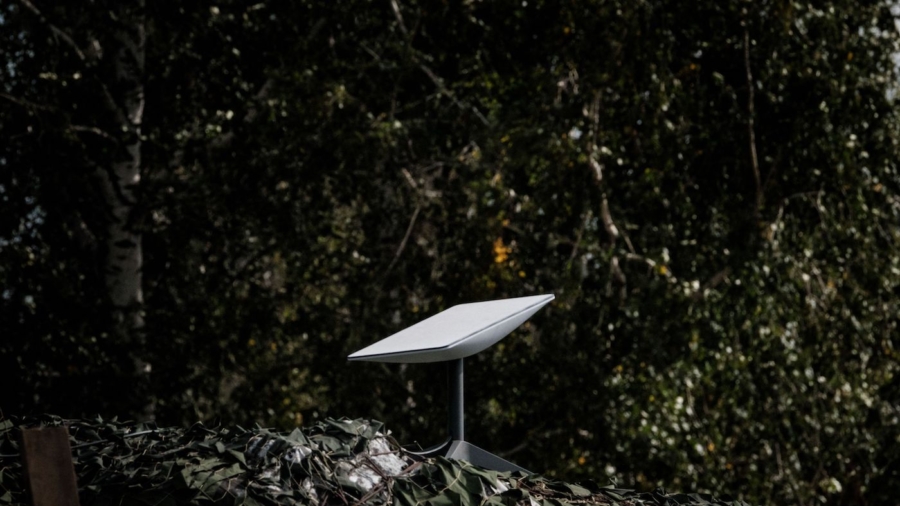The commercial space company SpaceX began providing its Starlink satellite internet services to Ukraine within days of Russian forces launching their large-scale invasion of the country. Now the company, which is owned by Elon Musk, is working to curb Ukrainian forces from using their satellite internet services for “weaponized” activities like controlling armed drones.
“We were really pleased to be able to provide Ukraine connectivity, and help them in their … fight for freedom,” SpaceX president and chief operating officer Gwynn Shotwell said at the 25th Annual FAA Commercial Space Transportation Conference on Wednesday. “It was never intended to be weaponized, however.”
Shotwell said Ukrainian forces had leveraged the satellite internet service technology in ways that were “not part of any agreement.”
“We know the military is using them for comms, and that’s ok,” she said. “But our intent was never to have them use it for offensive purposes.”
Speaking with reporters later on at the conference in Washington, D.C., Shotwell referred to reports that the Ukrainian military had used the Starlink service to control drones.
Ukrainian forces have used drones for a variety of purposes, including spotting enemy troops, directing artillery strikes, and even carrying out their own armed strikes.
Ukrainian forces have used military drones like the Turkish-built Bayraktar and a variety of loitering munitions which can be flown like drones until they spot targets and crash into those targets to detonate an explosive payload. Ukrainian forces have also modified off-the-shelf drones to drop grenades and other improvised explosives on Russian troops.
“There are things that we can do to limit their ability to do that,” Shotwell said, referring to Starlink’s use with drones. “There are things that we can do, and have done.”
She did not specify exactly what measures SpaceX has taken to prevent Ukrainian forces from using Starlink services to assist in its offensive capabilities.
NTD News reached out to SpaceX for comment but did not receive a response before this article was published.
Musk’s Ukraine-Starlink Stance
Musk, who is the founder and CEO of SpaceX, proposed a plan in October to bring about an end to the fighting in Ukraine. In his peace proposal, Musk said people living in Russian-controlled parts of Ukraine should hold new elections, under United Nations supervision, to decide whether to become a part of Russia or remain with Ukraine.
Musk also called for Ukraine to officially cede its claims of sovereignty over Crimea to Russia. Additionally, Musk called for Ukraine to refrain from cutting off the water supply to Crimea and to remain a neutral party between Russia and the North Atlantic Treaty Organization (NATO).
The proposal saw pushback from Ukrainian government officials.
One official tweeted at Musk, “F— off is my very diplomatic reply to you.”
Ukrainian President Volodymyr Zelenskyy responded by posting a Twitter poll, asking the public if they liked the Elon Musk who supports Ukraine or the one who supports Russia.
Within days of this online backlash, Musk hinted at ending free Starlink services in Ukraine, saying the company can’t indefinitely fund the service in the country.
SpaceX has continued to maintain Starlink services for Ukraine, though Musk has said the company loses about $20 million a month to provide the service.
Starlink experienced some service outages in Ukraine late last year. SpaceX has not yet revealed the reason behind those outages. When asked if the outages were related to SpaceX’s efforts to curb Starlink’s use in Ukrainian offensive operations, Shotwell said, “I don’t want to answer it because I’m not sure I know the answer.”
Reuters contributed to this article.

